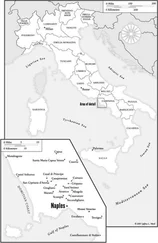Eric Ambler - Journey Into Fear
Здесь есть возможность читать онлайн «Eric Ambler - Journey Into Fear» весь текст электронной книги совершенно бесплатно (целиком полную версию без сокращений). В некоторых случаях можно слушать аудио, скачать через торрент в формате fb2 и присутствует краткое содержание. Год выпуска: 1940, ISBN: 1940, Издательство: Knopf, Жанр: Шпионский детектив, на английском языке. Описание произведения, (предисловие) а так же отзывы посетителей доступны на портале библиотеки ЛибКат.
- Название:Journey Into Fear
- Автор:
- Издательство:Knopf
- Жанр:
- Год:1940
- ISBN:9780307949967
- Рейтинг книги:5 / 5. Голосов: 1
-
Избранное:Добавить в избранное
- Отзывы:
-
Ваша оценка:
- 100
- 1
- 2
- 3
- 4
- 5
Journey Into Fear: краткое содержание, описание и аннотация
Предлагаем к чтению аннотацию, описание, краткое содержание или предисловие (зависит от того, что написал сам автор книги «Journey Into Fear»). Если вы не нашли необходимую информацию о книге — напишите в комментариях, мы постараемся отыскать её.
Journey Into Fear — читать онлайн бесплатно полную книгу (весь текст) целиком
Ниже представлен текст книги, разбитый по страницам. Система сохранения места последней прочитанной страницы, позволяет с удобством читать онлайн бесплатно книгу «Journey Into Fear», без необходимости каждый раз заново искать на чём Вы остановились. Поставьте закладку, и сможете в любой момент перейти на страницу, на которой закончили чтение.
Интервал:
Закладка:
Eric Ambler
Journey Into Fear
Verily I have seene divers become mad and senseless for feare: yea and in him, who is most settled and best resolved, it is certaine that whilest his fit continueth, it begetteth many strange dazelings, and terrible amazements in him.
MONTAIGNECHAPTER ONE
The steamer, Sestri Levante , stood high above the dock side, and the watery sleet, carried on the wind blustering down from the Black Sea, had drenched even the small shelter deck. In the after well the Turkish stevedores, with sacking tied round their shoulders, were still loading cargo.
Graham saw the steward carry his suit-case through a door marked PASSEGGIERI, and turned aside to see if the two men who had shaken hands with him at the foot of the gangway were still there. They had not come aboard lest the uniform of one of them should draw attention to him. Now they were walking away across the crane lines towards the warehouses and the dock gates beyond. As they reached the shelter of the first shed they looked back. He raised his left arm and saw an answering wave. They walked on out of sight.
For a moment he stood there shivering and staring out of the mist that shrouded the domes and spires of Stambul. Behind the rumble and clatter of the winches, the Turkish foreman was shouting plaintively in bad Italian to one of the ship’s officers. Graham remembered that he had been told to go to his cabin and stay there until the ship sailed. He followed the steward through the door.
The man was waiting for him at the head of a short flight of stairs. There was no sign of any of the nine other passengers.
“Cinque, signore?”
“Yes.”
“Da queste parte.”
Graham followed him below.
Number five was a small cabin with a single bunk, a combined wardrobe and washing cabinet, and only just enough floor space left over to take him and his suit-case. The port-hole fittings were caked with verdigris, and there was a strong smell of paint. The steward manhandled the suit-case under the bunk, and squeezed out into the alley-way.
“Favorisca di darmi il suo biglietto ed il suo passaporto, signore. Li portero al Commissario.”
Graham gave him the ticket and passport, and, pointing to the port-hole, made the motions of unscrewing and opening it.
The steward said, “Subito, signore,” and went away.
Graham sat down wearily on the bunk. It was the first time for nearly twenty-four hours that he had been left alone to think. He took his right hand carefully out of his overcoat pocket, and looked at the bandages swathed round it. It throbbed and ached abominably. If that was what a bullet graze felt like, he thanked his stars that the bullet had not really hit him.
He looked round the cabin, accepting his presence in it as he had accepted so many other absurdities since he had returned to his hotel in Pera the night before. The acceptance was unquestioning. He felt only as if he had lost something valuable. In fact, he had lost nothing of any value but a sliver of skin and cartilage from the back of his right hand. All that had happened to him was that he had discovered the fear of death.
By the husbands of his wife’s friends, Graham was considered lucky. He had a highly paid job with a big armaments manufacturing concern, a pleasant house in the country an hour’s drive from his office, and a wife whom everyone liked. Not that he didn’t deserve it all. He was, though you would never think it to look at him, a brilliant engineer; quite an important one if some of the things you heard were true; something to do with guns. He went abroad a good deal on business. He was a quiet, likeable sort of chap, and generous with his whisky. You couldn’t, of course, imagine yourself getting to know him very well (it was hard to say which was worse-his golf or his bridge), but he was always friendly. Nothing effusive; just friendly; a bit like an expensive dentist trying to take your mind off things. He looked rather like an expensive dentist, too, when you came to think of it: thin and slightly stooping, with well-cut clothes, a good smile, and hair going a bit grey. But if it was difficult to imagine a woman like Stephanie marrying him for anything except his salary, you had to admit that they got on extraordinarily well together. It only went to show …
Graham himself also thought that he was lucky. From his father, a diabetic school-master, he had inherited, at the age of seventeen, an easy-going disposition, five hundred pounds in cash from a life insurance policy, and a good mathematical brain. The first legacy had enabled him to endure without resentment the ministrations of a reluctant and cantankerous guardian; the second had made it possible for him to use the scholarship he had won to a university; the third resulted in his securing in his middle twenties a science doctorate. The subject of his thesis had been a problem in ballistics, and an abridged version of it had appeared in a technical journal. By the time he was thirty he was in charge of one of his employers’ experimental departments, and a little surprised that he should be paid so much money for doing something that he liked doing. That same year he had married Stephanie.
It never occurred to him to doubt that his attitude towards his wife was that of any other man towards a wife to whom he has been married for ten years. He had married her because he had been tired of living in furnished rooms, and had assumed (correctly) that she had married him to get away from her father-a disagreeable and impecunious doctor. He was pleased by her good looks, her good humour, and her capacity for keeping servants and making friends, and if he sometimes found the friends tiresome, was inclined to blame himself rather than them. She, on her part, accepted the fact that he was more interested in his work than in anyone or anything else as a matter of course and without resentment. She liked her life exactly as it was. They lived in an atmosphere of good-natured affection and mutual tolerance, and thought their marriage as successful as one could reasonably expect a marriage to be.
The outbreak of war in September nineteen thirty-nine had little effect on the Graham household. Having spent the previous two years with the certain knowledge that such an outbreak was as inevitable as the going down of the sun, Graham was neither astonished nor dismayed when it occurred. He had calculated to a nicety its probable effects on his private life, and by October he was able to conclude that his calculations had been correct. For him, the war meant more work; but that was all. It touched neither his economic nor his personal security. He could not, under any circumstances, become liable for combatant military service. The chances of a German bomber unloading its cargo anywhere near either his house or his office were remote enough to be disregarded. When he learned, just three weeks after the signing of the Anglo-Turkish treaty of alliance, that he was to go to Turkey on company business, he was troubled only by the dismal prospect of spending Christmas away from home.
He had been thirty-two when he had made his first business trip abroad. It had been a success. His employers had discovered that, in addition to his technical ability, he had the faculty, unusual in a man with his particular qualifications, of making himself amiable to-and liked by-foreign government officials. In the years that followed, occasional trips abroad had become part of his working life. He enjoyed them. He liked the actual business of getting to a strange city almost as much as he liked discovering its strangeness. He liked meeting men of other nationalities, learning smatterings of their languages, and being appalled at his lack of understanding of both. He had acquired a wholesome dislike of the word “typical.”
Читать дальшеИнтервал:
Закладка:
Похожие книги на «Journey Into Fear»
Представляем Вашему вниманию похожие книги на «Journey Into Fear» списком для выбора. Мы отобрали схожую по названию и смыслу литературу в надежде предоставить читателям больше вариантов отыскать новые, интересные, ещё непрочитанные произведения.
Обсуждение, отзывы о книге «Journey Into Fear» и просто собственные мнения читателей. Оставьте ваши комментарии, напишите, что Вы думаете о произведении, его смысле или главных героях. Укажите что конкретно понравилось, а что нет, и почему Вы так считаете.












